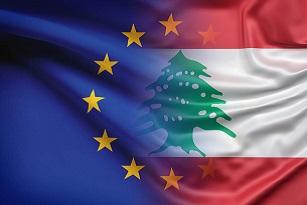
Today the European Union has announced a package of up to €150 million to support the revitalisation of the Lebanese economy as part of its longstanding commitment to the economic development of Lebanon.
This support could generate up to €1.5 billion loans for Lebanon until 2020, on condition that the country's financial institutions identify and propose projects that are bankable and adopt relevant reforms. This package includes up to €50 million in grants funding that could be mobilised in each of the coming three years (2018-2020) to provide technical assistance and ensure a sufficient level of concessionality of loans.
High Representative for Foreign Affairs and Security Policy/Vice-President of the European Commission Federica Mogherini said: "The European Union has always been on the side of Lebanon and the Lebanese people. A strong and resilient Lebanon is in our collective interest, in the interest of the entire region. Lebanon is a mirror of the whole Middle East, of its diversity, complexity and beauty. With this new package, the European Union reconfirms its support to the Lebanese economy, for the benefit of the Lebanese people, and encourages the Government of Lebanon to pursue the path of structural reforms it has started to undertake."
Commissioner for Enlargement Negotiations and Neighbourhood policy Johannes Hahn added: “The EU contribution is a signal of our support for the Government of Lebanon, whose tasks include now taking forward a road map of structural reforms to boost economic development in the country for the benefit of all. We will support and accompany this effort. Through the External Investment Plan, the EU is ready to extend up to €150 million in grants that could be used to generate up to €1.5 billion of concessional lending for investment in Lebanon over the next three years provided relevant projects are put forward and the necessary reforms are adopted”.
The package was announced today at the CEDRE conference in Paris, an international donor meeting in support of Lebanon's economy. This will be made available in the framework of the European External Investment Plan (EIP), a comprehensive and ambitious EU plan which encourages investment in our partner countries for the promotion of inclusive growth, job creation and sustainable development.
Background
Bilateral Support
To date, the EU has allocated more than €1.3 billion in assistance to Lebanon since 2011, both for bilateral assistance (€268 million) and in response to the Syria crisis (€1.069 billion). Additional funds will be available in the bilateral assistance envelope for promoting growth and job creation as well as improving local governance and socio-economic development.
In November 2016, the European Union and Lebanon adopted Partnership Priorities for the period 2016-2020, which set up a renewed framework for political engagement and enhanced cooperation. The Partnership Priorities include security and countering terrorism, governance and the rule of law, fostering growth and job opportunities, and migration and mobility. They were agreed in the context of the revised European Neighbourhood Policy and the EU's Global Strategy for Foreign and Security Policy.
External Investment Plan
The External Investment Plan for Lebanon was launched in Beirut last 6 February.
The EU's External Investment Plan is an innovative and ambitious EU plan that encourages investment in the EU's partner countries in Africa and the EU Neighbourhood region. It promotes inclusive growth, job creation and sustainable development and so tackle some of the root causes of irregular migration. The External Investment Plan is adapted to the specific needs of partner countries and builds on the very successful model used within the EU, where the ‘Juncker Plan' has already triggered more than €240 billion of investment.
The EIP encourages private investors to contribute to sustainable development in countries outside of Europe, it integrates into more traditional forms of assistance such as grants, a new generation of financial instruments– namely guarantees, risk sharing instruments, as well as the blending of grants and loans. It also includes a guarantee mechanism in order to crowd in private investments, where viable business proposals meet social needs, and where limited public funds can attract private money.
Overall, about €44 billion are expected to be mobilised under the EIP from 2017 until 2020 for Africa and EU's neighbourhood.
More info:
Details
- Publication date
- 6 April 2018
- Author
- Directorate-General for Neighbourhood and Enlargement Negotiations
